Figuring out how long you can stay parked somewhere can be confusing sometimes. Do you want to take an extended road trip but don't know how long you can stay in an RV park? Well, we've done some digging and have the answers here for you. Let's check it out.
You can usually stay in an RV park for 14 days at a time. This goes for any federally or state-owned RV park/campground and may sometimes extend to 21 days. On the other hand, privately owned RV parks and campgrounds may allow you to stay seasonally for a certain price, so it's a good idea to reach out before your trip.
As we begin, we will cover all things RV parks and discuss how long you can stay at one. Whether you're new to road tripping or want to try something different, we're here to offer some help. With that said, let's dive right into this post!
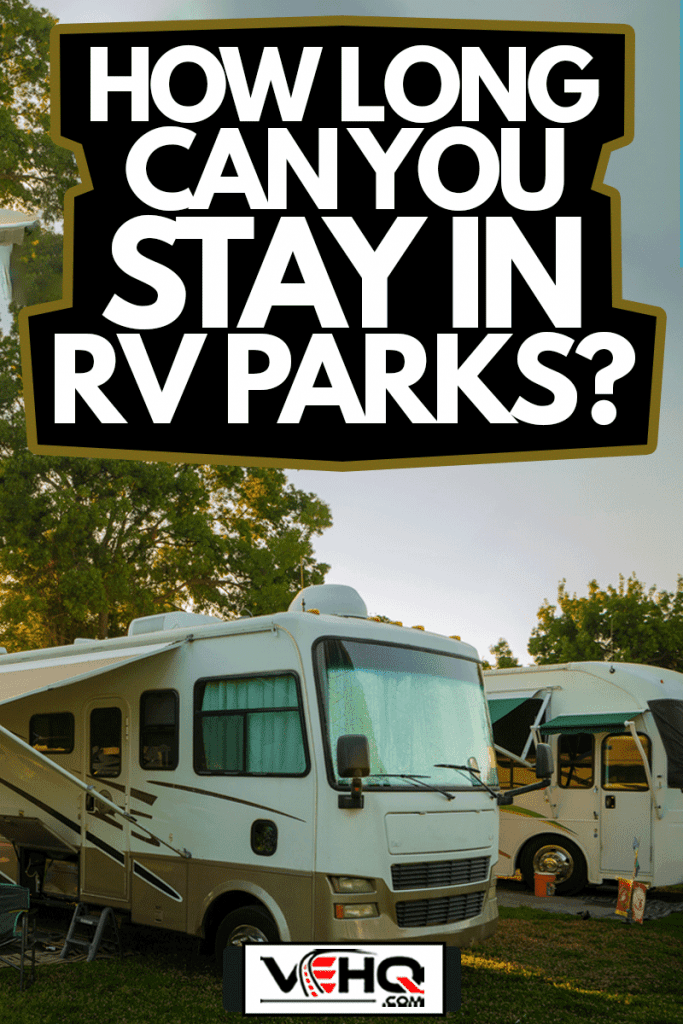
Can You Stay In An RV Park Long-Term?
Yes, it is possible to make an RV park more of a long-term living situation. Although this depends on whether the park you're at is government, state, or private property, you can usually stay a few months if you obtain permission.
For example, some campgrounds/RV parks will have you sign a contract stating how many days or months you can legally stay there, which we recommend doing. You might also negotiate a monthly "rent" from the site owner, so there are a few ways to go about this.
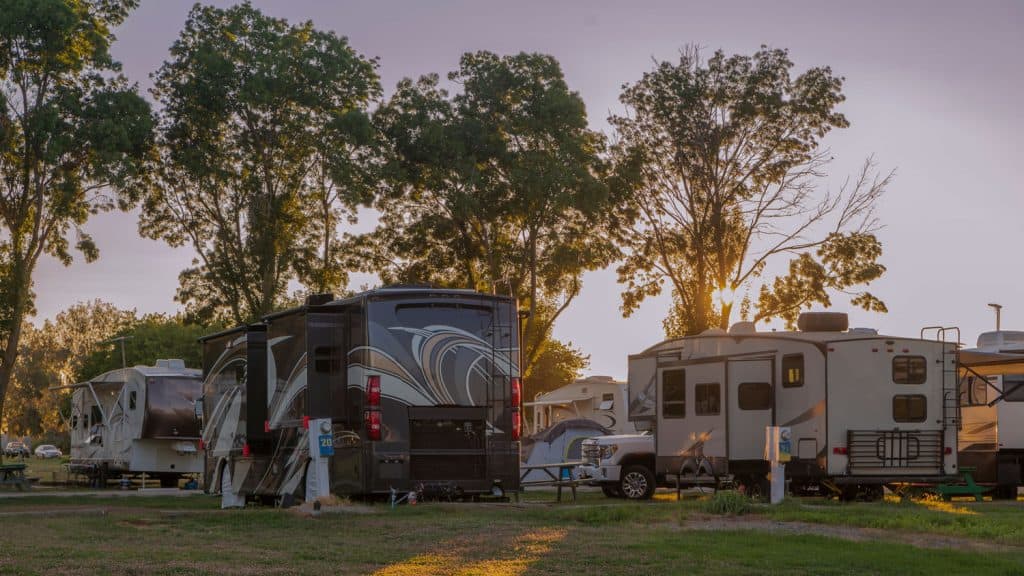
How Much Does It Cost To Stay At An RV Park Long-Term?
Typically, it will cost you between $500 and $1,200 per month to stay at an RV park long-term. This price will usually include your utilities and amenity charges, although every site is slightly different.
If you plan on staying at an RV park for the year, this can cost anywhere from $3,600-$20,000, so it isn't cheap. That said, location and availability can impact how expensive your monthly/annual RV park stay is, so we recommend negotiating a set price ahead of your visit.
Is It Possible To Live In An RV Park For Years?
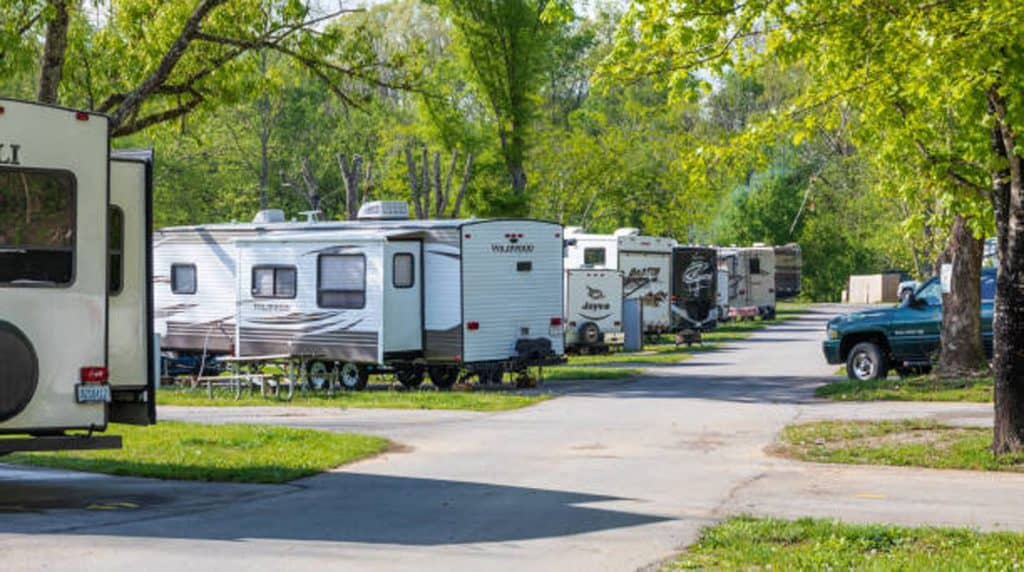
Yes, it is possible to live in an RV park for years on end. Although some ordinances prohibit people from using their RV as a permanent home, you can get away with doing this if you stay at an RV park or campground.
That said, most sites have a six-month limit, so you may need to share your time between two separate RV parks.
What States Allow You To Live In An RV?
Surprisingly, there are a ton of states that allow full-time RV living. A few of the more popular places include:
- California
- Washington State
- South Dakota
- Virginia
- New York
- Nevada
- Arizona
- Florida
- Montana
- Texas
Although the list goes on, these states tend to have better RV parks and campgrounds, so you may want to check them out if you're going to do this long-term.
What Is The Average Monthly Cost To Live In An RV?
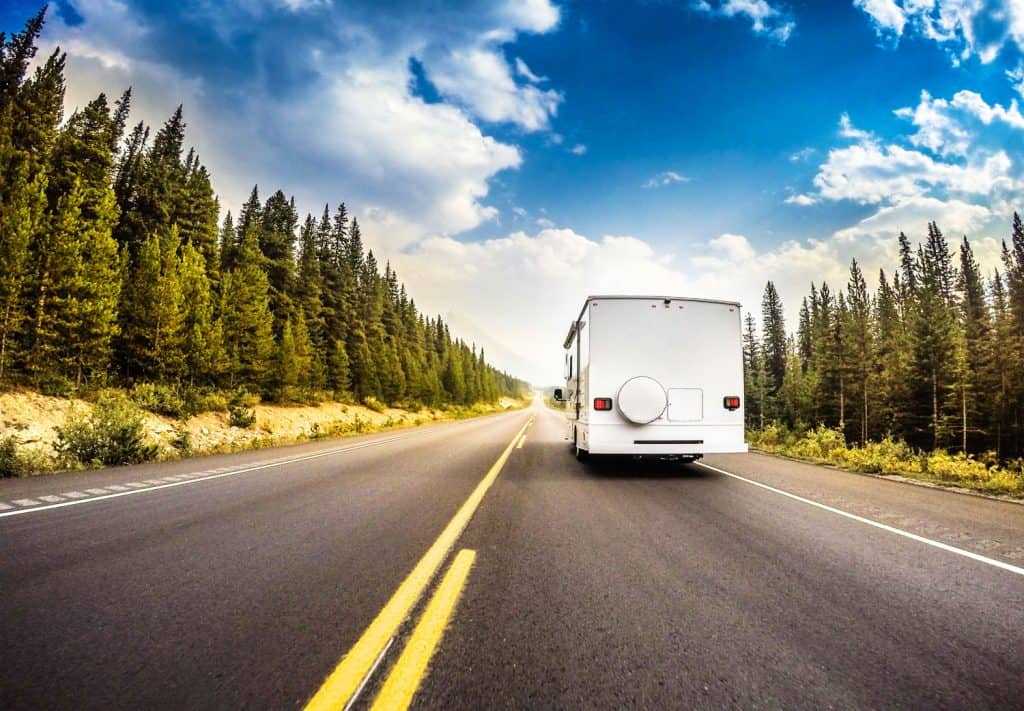
In general, it's going to cost you at least $1,400 per month to live in an RV. Considering you will probably have a monthly rent at the park you stay in, this takes up a big chunk of your monthly expenses.
You also have to consider food and gas, which can easily cost around $800 extra each month. RV living can be as expensive as $3,000 monthly, so make sure to create a budget.
Is RV Living Cheaper Than An Apartment?
RV living can be cheaper than renting an apartment. Especially if you currently live in a big city or expensive area, switching to an RV can be life-changing.
That said, you still have to pay rent at an RV park or campground, but this shouldn't be more than $1,200 per month. Ultimately, RV living will be less expensive than renting an apartment/home, so it's undoubtedly cost-effective.
Can You Use An RV Park As Your Permanent Address?
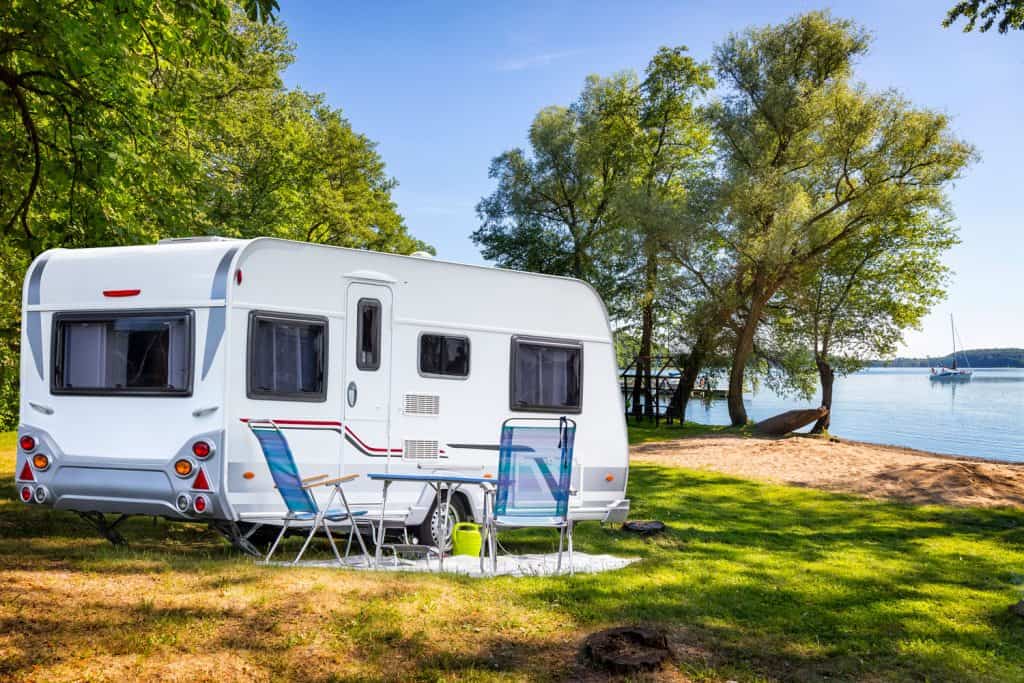
If you live at an RV park long-term, you can use it as a permanent address. Most times, you will need to update this information with the US post office, which only requires proof of residency.
If you stay at a particular park for more than six months out of the year, this will usually qualify as a semi-permanent/permanent address, so it's a good idea to inform your local mail carrier.
Can You Recieve Mail At An RV Park?
Yes! You can get your mail if you're living at an RV park. Typically, you want to open a PO box with USPS or send your mail directly to your new address, although not all campgrounds/RV parks allow this.
We recommend contacting the park you're interested in before forwarding your mail to make sure they are willing to accept it. Luckily, many RV parks have designated mail rooms or drop-off boxes, so this shouldn't be an issue.
Do RV Parks Allow Pets?

Although it varies, most RV parks will allow a limited number of pets. Most commonly, dogs and cats will be permitted to stay in your RV on-site, but it's best to check beforehand.
Some RV parks even have designated dog parks and play areas, so finding a super pet-friendly option is possible.
Can You Leave Your Dog Unattended In An RV Park?
Yes, like an apartment, you can leave your dog unattended in an RV park. As long as your pet isn't loud, there usually won't be any issues with having them stay alone for a few hours.
With that said, you don't want to leave your dog outside in an RV park, as this can be unsafe. We recommend keeping your pets inside your RV whenever you aren't with them, especially in the great outdoors.
Can You Park A Tiny House At An RV Park?
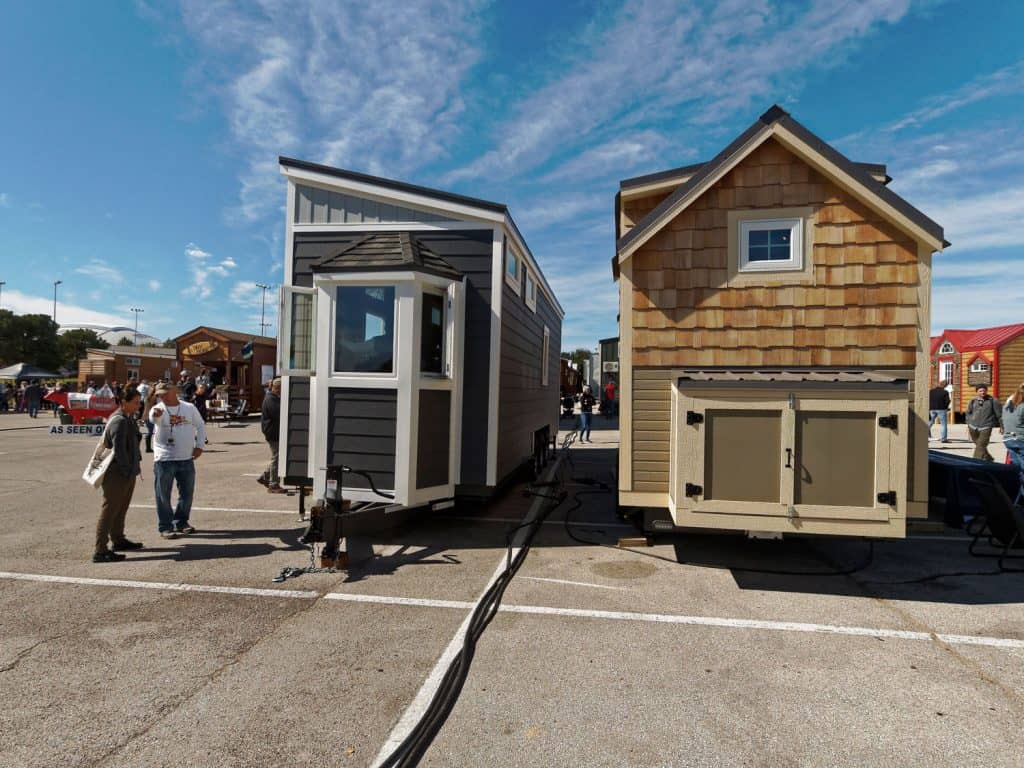
It is usually okay to park a tiny house in an RV park short-term. Again, this depends on the site owner, but you should be allowed to do this for the length of your stay.
It's also important to check the ground before placing your tiny home down to ensure the soil isn't too soft or wet, so you don't end up stuck when it's time to leave.
Can You Put A Tiny Home On Any Property?
Like an RV, you will usually need to obtain permission or a permit before placing your tiny home. Generally, this isn't too difficult and is okay at most campgrounds and recreational parks.
One of the drawbacks of traveling with a tiny house versus a traditional RV is that it is considered more of a permanent living environment, which can cause site-owners to be reluctant. That said, there are plenty of tiny home-friendly RV properties across the US, so don't get discouraged if a few say no.
Are RV Parks Crowded?
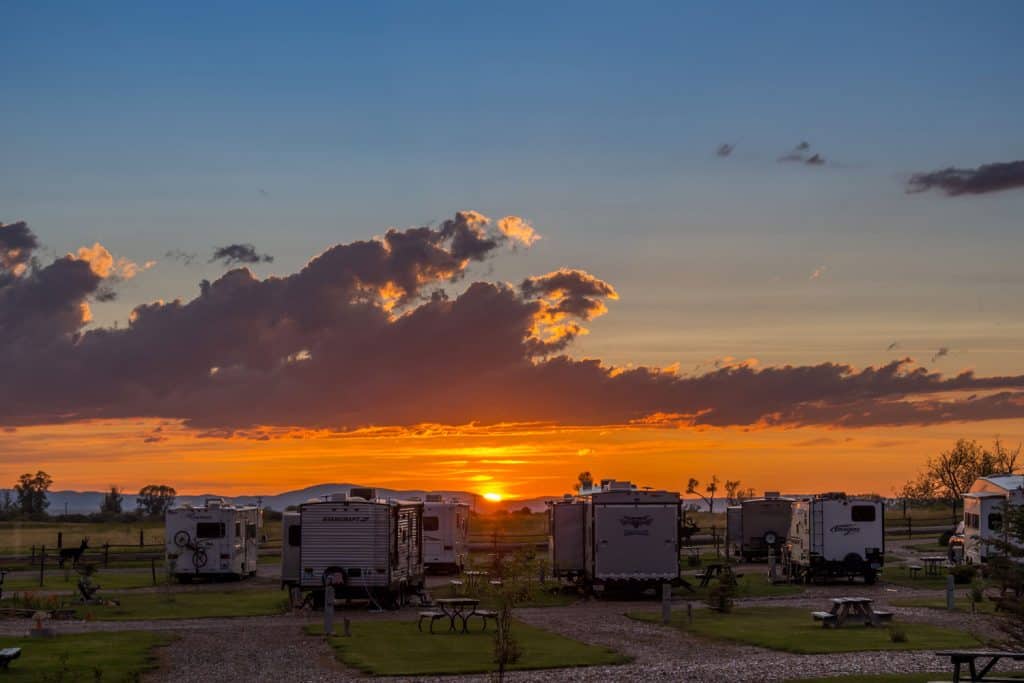
Although this varies, RV parks can get somewhat crowded. Especially in the summer and during holiday seasons, you might run into more people staying at an RV site and parking closer to you.
This is pretty normal, regardless of where you're at, so expect more travelers nearby if it's a busy season or holiday. Again, your RV park may be more strict with occupancy and vehicle size, so it's a good idea to follow up with them.
Are RV Parks Safe?
We would agree that RV parks are relatively safe. According to KOA, RV parks and campgrounds tend to attract non-criminal guests, although they won't ever be fully crime-free.
It's always a good idea to keep your RV locked whenever you aren't inside and make sure to travel with a companion. It's also wise to get to know the people around you, and if you see anything suspicious, report it immediately to management.
Is Long-Term RV Living Worth It?

If you need a change of scenery and lifestyle, long-term RV living is a great idea. Not only will living in an RV usually save you money, but it's also an amazing way to travel around the country.
Long-term RV living is also perfect for those with online jobs and the ability to pack up and go, so if you think this will benefit you, we say go for it.
To Wrap Everything Up
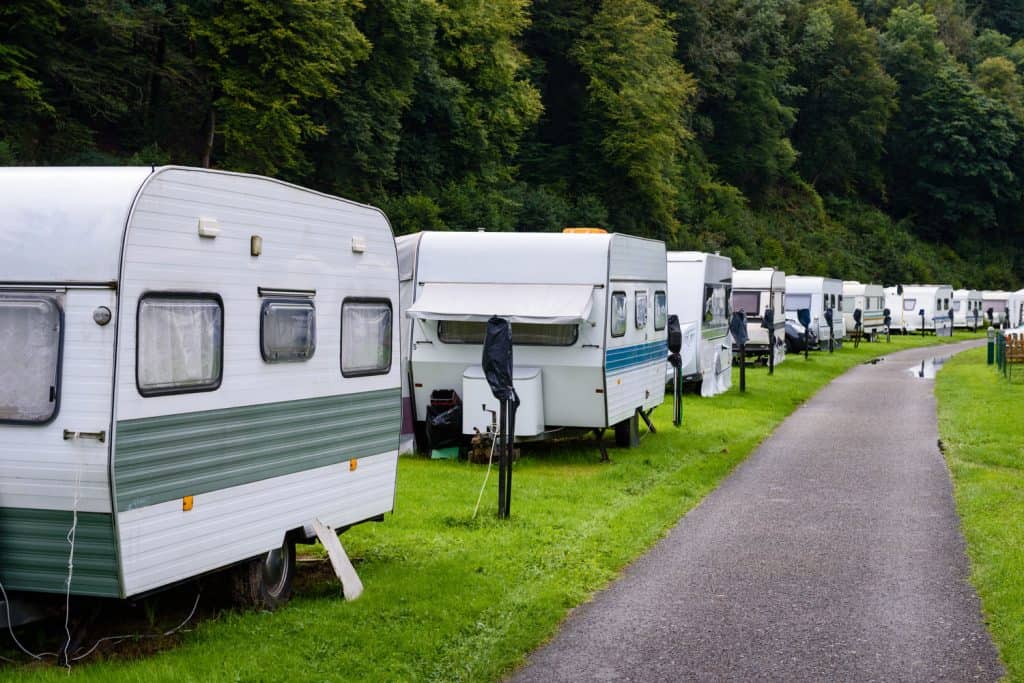
Whether you're currently planning an extended road trip or want to try RV living, figuring out how long you can stay in one location is essential. From what we found, you can usually stay at an RV park for 14 days at a time, although some properties allow up to 21.
Depending on the site owner, you might also be able to rent your spot for months or even years on end, but this varies. Cost-wise, expect to pay between $500 and $1,200 per month to stay at an RV park and up to $20,000 annually.
Regardless, make sure to check with your RV park's management about mail forwarding and pets beforehand, and don't forget to enjoy the ride!
Made it to the end? Head on over to these helpful related posts below!
Does RV Skirting Help In Winter? [And How About The Summer?]
